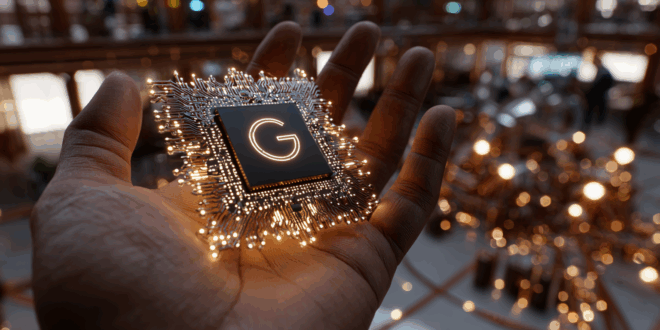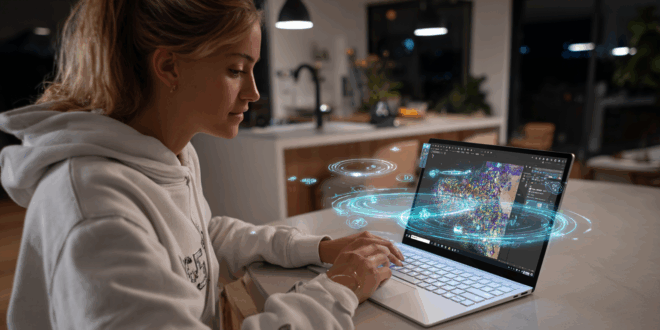On October 23, 2024, Anthropic signed a significant partnership with Google Cloud, gaining access to nearly one million Tensor Processing Units (TPUs).
This energy pact includes computing capacity exceeding one gigawatt, expected by 2026. With these resources, Anthropic is set to elevate its Claude model to new heights. The partnership with Google paves the way for faster training, more refined iterations, and even more ambitious artificial intelligence.
Economic Reasons, A Response to Nvidia and OpenAI
Google’s TPUs offer a notable energy efficiency compared to Nvidia’s GPUs. These chips consume fewer resources while ensuring high performance, attracting industry players facing rising costs and hardware shortages.
Thomas Kurian, CEO of Google Cloud, praises this partnership with Anthropic as a recognition of TPUs’ technological maturity. The seventh generation of these processors, named Ironwood, combines power, stability, and energy sustainability.
This agreement comes at a time when global competition for controlling AI-dedicated computing resources is intensifying. Nvidia maintains a dominant position, but its limited production has triggered a rush for alternatives.
By enhancing the availability of its TPUs, Google is now positioning itself as a direct competitor in high-performance computing. Anthropic, for its part, is diversifying its partnerships to avoid dependency.
In addition to Google, the Amodei brothers’ startup collaborates with Amazon, its main cloud and model-training provider. The parent company of Claude also works with Nvidia, whose GPUs remain essential for certain optimization processes. This multi-vendor approach aims to secure access to critical resources and balance costs.
A Spectacular Rise to Power
Anthropic is experiencing rapid growth. In just one year, the number of its clients generating over 100,000 dollars in recurring revenue has surged sevenfold. The company now boasts more than 300,000 professional clients, including large corporations and AI-native startups.
This massive access to TPUs will further expand its offering and meet the growing demand for computing power. Additional resources will also strengthen the security and alignment of models, critical areas to which Anthropic dedicates considerable research efforts.
The agreement illustrates the investment frenzy gripping the sector. The demand for AI chips vastly outstrips the global supply, prompting tech giants to secure their supplies for years to come.
According to industry estimates, one gigawatt of computing power can cost nearly 50 billion dollars. OpenAI has reportedly signed several contracts totaling up to 26 gigawatts, estimated at over one trillion dollars.
This partnership with Anthropic also strengthens Google’s strategic position in the new AI ecosystem. By making its TPUs available to a competitor of OpenAI, the Mountain View firm is betting on openness and resource sharing to drive innovation.
Meanwhile, Anthropic consolidates its independence while ensuring priority access to a rare resource: exascale-level computing power. This alliance symbolizes a typical tech industry cooperation-competition.





